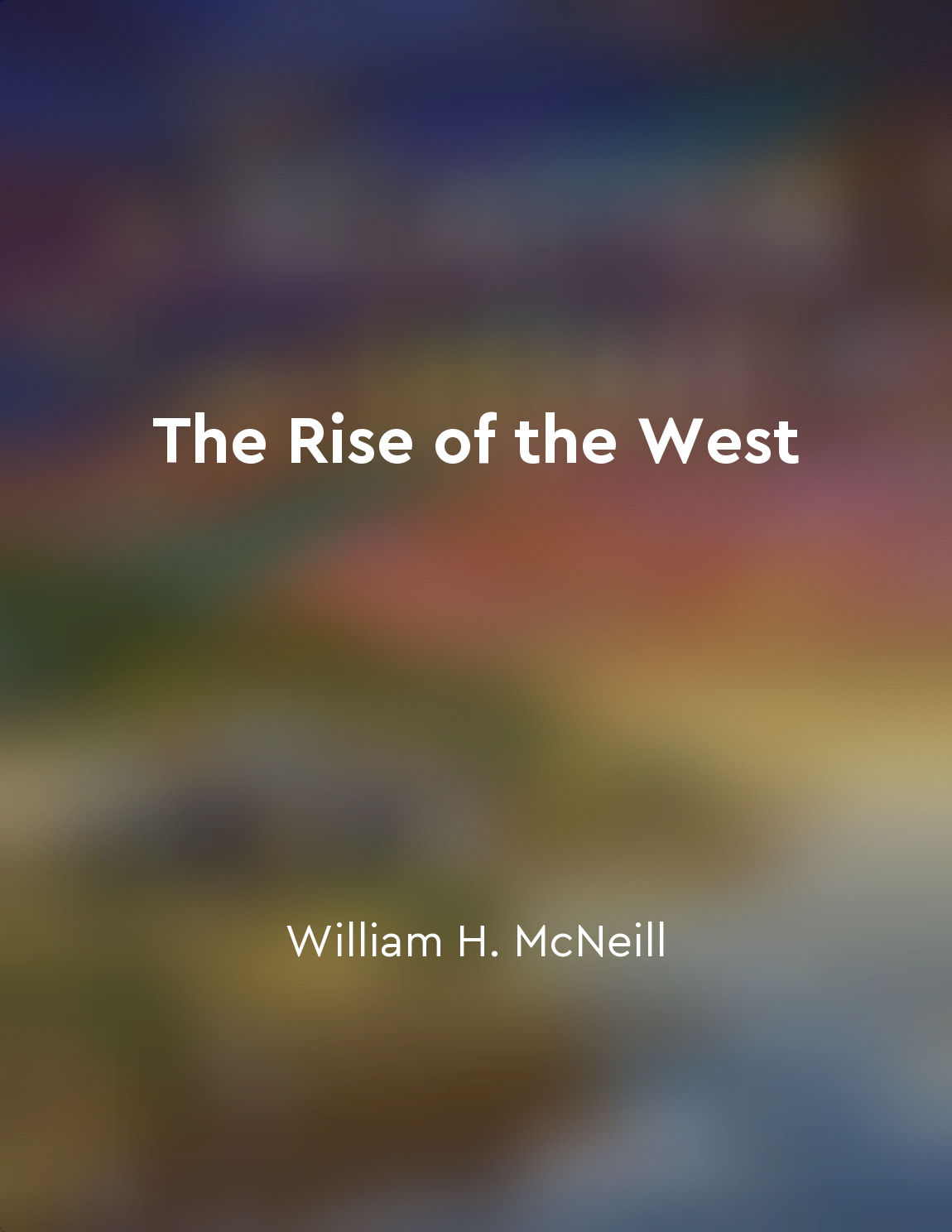Civilizations rise and fall from "summary" of The Decline of the West by Oswald Spengler
The life of a civilization is a cycle that has been repeated throughout history, from the rise of Ancient Egypt and Mesopotamia to the fall of Rome. Each civilization goes through stages of growth, maturity, decline, and eventual collapse. This cycle is inevitable and cannot be avoided, as all civilizations are subject to the same laws of nature and history. The rise of a civilization is marked by a period of growth and expansion, where new ideas, technologies, and institutions are developed. This period is characterized by creativity, innovation, and a sense of optimism and possibility. As the civilization matures, it reaches its peak of power and influence, dominating its region and setting the stage for further development. However, every civilization contains the seeds of its own destruction. As a civilization grows and expands, it becomes more complex and bureaucratic, leading to inefficiency, corruption, and decadence. The values that once held the civilization together begin to erode, leading to social unrest, political instability, and economic decline. At this point, the civilization enters a period of decline, marked by internal strife, external threats, and a loss of faith in the future. The decline of a civilization is often gradual, with the signs of decay becoming more pronounced over time. The ruling elite becomes out of touch with the needs of the people, leading to resentment and rebellion. The economy falters, resources become scarce, and social cohesion breaks down. Eventually, the civilization reaches a tipping point, where it can no longer sustain itself and collapses under its own weight. The fall of a civilization is a time of chaos, upheaval, and uncertainty. The institutions that once held the civilization together crumble, leaving behind a vacuum of power and authority. In this state of disarray, new forces emerge to fill the void, leading to the rise of new civilizations and the cycle begins anew. In the grand sweep of history, civilizations rise and fall like waves on the ocean, each one leaving its mark on the world before fading into obscurity. This cycle of birth, growth, decline, and collapse is a testament to the impermanence of human achievement and the inevitability of change. As one civilization falls, another rises to take its place, continuing the eternal dance of history.Similar Posts
Culture shapes individuals' identities and behaviors
Culture is not simply a set of customs or traits that individuals passively absorb and exhibit. It is a complex system of symbo...

The rise of nationalism has posed a threat to global cooperation
The current surge in nationalism poses a significant threat to global cooperation. Nationalism, the belief that one's own natio...
Society's destiny is shaped by geographical factors
Geographical factors have played a significant role in shaping the destiny of societies throughout history. The environment in ...

Technological advancements lead to societal inequalities
Technological advancements, while contributing to the overall progress of society, have also been a source of societal inequali...
Nothing can be done to alter future; accepts inevitable fate
The Time Traveler's incredulous friends gathered around the Time Machine, questioning the legitimacy of his journey to the futu...
The decline is a result of cultural exhaustion
The decline of a civilization is not simply a matter of external factors such as wars or economic crises. It is, fundamentally,...
Agriculture allows for population growth
Agriculture was a game-changer for human societies. Before the development of agriculture, our ancestors were hunter-gatherers,...
Pandemics as catalysts for societal change
The cataclysmic events of pandemics throughout history have often served as powerful catalysts for profound societal change. Th...
The decline is a natural progression
The decline is not an anomaly or a deviation from the norm, as many would like to believe. It is, in fact, a natural progressio...
